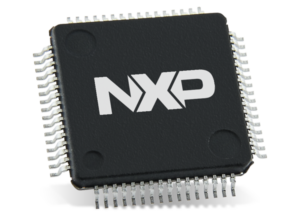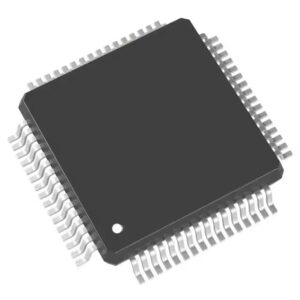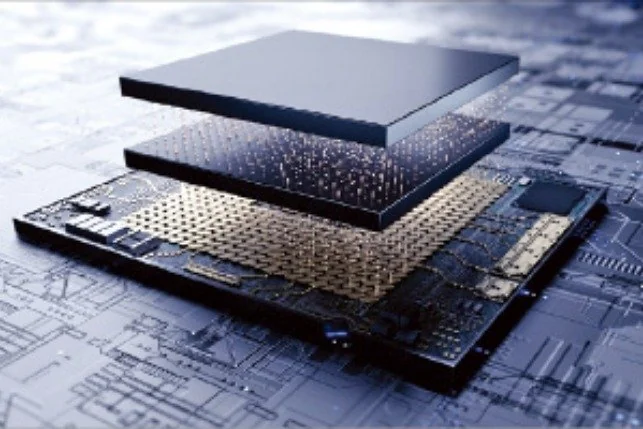Microcontrollers play a role, in the world of embedded systems as they provide power to devices. NXP Semiconductors is a known semiconductor manufacturer that specializes in high performance microcontroller units (MCUs).
What are NXP MCUs?
NXP MCUs stand out in aspects making them perfect for demanding applications. They leverage technology. Utilize cores such as Arm Cortex M0, M4 and M33. These cores offer clock speeds, exceptional processing capabilities and support for algorithms—all of which ensure optimal performance.
When it comes to connectivity options NXP MCUs offer a range. They come equipped with Ethernet, USB, CAN, SPI, I2C and UART interfaces—making integrating them seamlessly with devices and networks. Moreover, they also support protocols like Wi-Fi, Bluetooth, and Zigbee—facilitating effortless communication within ecosystems.
Addressing the growing importance of security in today’s world is one of the focuses for NXP MCUs. They incorporate security features such, as hardware encryption engines, secure boot functionality to ensure startup processes tamper detection mechanisms and secure key storage facilities.
Overall NXP microcontroller units offer performance, seamless connectivity, security features and energy efficiency making them suitable for a range of applications.
NXP MCUs Product Lineup
NXP Semiconductors provides a selection of MCU families, each specifically designed to meet application requirements.
Arm Cortex M33 Microcontrollers
The Arm Cortex M33 processor is a 32-bit RISC core that caters to microcontroller applications. It offers improved computing capabilities, handling of interrupts with latency, integrated sleep modes for power saving purposes and comprehensive debugging and tracing features. This product line includes:
LPC5500 Series: NXPs LPC5500 series is based on the Arm Cortex M33 core and offers microcontrollers. These MCUs bring enhancements, increased integration levels and advanced features for diverse application needs.
i.MX RT600 Series Series: This lineup represents a crossover MCU that combines the Cadence® Tensilica® HiFi 4 audio DSP core with the Arm Cortex M33 core. It provides up to 4.5 MB of on-chip SRAM along with an array of peripherals and integrated security measures.
i.MX RT500 Series: This microcontroller combines a 2D GPU, the Cadence Tensilica Fusion F1 DSP core, and the Arm Cortex M33 core. With up to 5 MB of on-chip SRAM, it offers a range of peripherals, integrated security features, and low power consumption.
 Arm Cortex M4 Microcontrollers
Arm Cortex M4 Microcontrollers
These microcontrollers are widely chosen for its performance and processing (DSP) capabilities. There are product lines that utilize this processor:
The Kinetis K Series: This series by NXP is equipped with the Arm Cortex M4 core and provides an array of connectivity options for various applications.
The LPC 4000 Series: Boasts ARM Cortex M4 cores with clock speeds and advanced processing capabilities. Its wide range of connectivity options including USB, Ethernet, CAN and more make it ideal for applications requiring connectivity and real time data processing.
The LPC 4300 Series: Stands out with its dual ARM Cortex M4 cores delivering processing capabilities tailored for demanding applications. This series offers connectivity options like Ethernet, USB, CAN and SPI which enable integration, into various systems and networks.
The LPC 5400 Series: Comprises microcontrollers that utilize ARM Cortex M4/M0 cores, combining high performance processing, with energy operation. These microcontrollers have connectivity options such as Ethernet, USB, CAN, SPI and I2C facilitating communication with external devices and networks.
These microcontroller series offer performance and versatile connectivity features to meet the requirements of application scenarios.
Arm Cortex M0/M0+ Microcontrollers 
These microcontrollers are designed to provide cost-efficient solutions. This product line includes:
K32 L2 Series: A family of integrated microcontrollers with low power consumption. They are specifically designed for consumer, industrial and IoT applications. These microcontrollers feature a low leakage architecture and advanced security measures to cater to power secure edge computing needs.
Kinetis L Series: Part of NXPs EdgeVerse edge computing platform these microcontrollers offer low power UART and timers along with PWM capabilities. They are ideal for applications that demand low power consumption. With their power optimized design the series delivers reliable performance.
LPC 800 Series: NXP’s versatile microcontroller series offering a cost solution, for applications.
These sized microcontrollers are designed to consume power making them a great choice, for various design purposes. They excel in applications where size, power efficiency and functionality hold importance.
LPC 51U68 Series: These microcontrollers have ARM Cortex M0+ cores that deliver performance. They offer a range of connectivity options, including USB, UART, SPI and I2C. These features make them suitable for applications that require communication capabilities. With their set of functionalities and robust processing abilities developers can create efficient solutions using this series.
LPC 1100 Series: This family of microcontrollers is specifically designed for cost applications while maintaining a balance between performance and energy efficiency. Their capabilities make them suitable for a range of applications.
LPC 1200 Series: These microcontrollers integrate analog components into their design. Along with interfaces they provide integrated analog connections like ADCs and DACs. This makes them ideal for applications that demand analog measurements and control. The LPV1200 series offers features for mixed signal applications while being a cost solution, for embedded designs.
 Arm Cortex M3 Microcontrollers
Arm Cortex M3 Microcontrollers
The Arm Cortex M3 processor is tailored to meet the demands of performance yet energy applications. The product line, within this series consists of the following:
LPC 1800 Series: These microcontrollers are part of a high-performance family. Are equipped with a 32-bit ARM Cortex M3 core running at 180 MHz. They offer connectivity options, such as high-speed interfaces and timers, making them suitable for applications that require fast data transfer and precise timing.
LPC 1700 Series; NXPs series comprises microcontrollers that feature high performance ARM Cortex M3 cores. These MCUs have optimized power consumption making them well suited for a range of applications including control, consumer electronics and more.
LPC 1500 Series: Designed to provide performance in cost applications this series of microcontrollers includes ARM Cortex M3 cores that strike a balance between processing power and efficient operation. With low power modes available developers can enjoy flexibility and energy efficiency in their designs using the LPC 1500 series.
LPC 1300 Series: This family of microcontrollers offers power efficiency alongside low pin count packages. With their 32-bit control capabilities and basic connectivity options, these MCUs are ideal for applications where compact size, low power consumption, and reliable performance are factors to consider.
Legacy Arm 7/ Arm 9
While the Arm Cortex M series has become quite popular, there are still product lines that rely on the Arm 7 and Arm 9 cores. These cores were widely used in generations of microcontrollers.
LPC 3000 Series: This family is based on the Arm 9 architecture. These microcontrollers offer a cost solution, with high performance capabilities.
LPC 2000 Series: This series represents a legacy of general purpose MCUs based on the Arm 7 architecture. These microcontrollers strike a balance between performance and cost effectiveness making them suitable for a range of applications. This series provides integrated features to meet design requirements.
Applications of NXP MCUs
NXP MCUs find use across industries and domains showcasing their versatility and adaptability. Here are some examples of their applications:
Automotive: NXP MCUs power systems such as engine control units (ECUs), advanced driver assistance systems (ADAS), infotainment systems, and body control modules. Their processing power, advanced communication interfaces, and safety features ensure performance in vehicles.
Industrial Automation: NXP MCUs play a role in automation by empowering applications, like factory automation, robotics and intelligent control systems. These microcontroller units (MCUs) provide control, facilitate communication and offer network connectivity. As a result, they contribute to increased productivity and operational efficiency.
Consumer Electronics: These chips are widely used in devices such, as TVs, home appliances, wearables and gaming consoles. Leveraging their performance, power consumption and versatile connectivity features NXP MCUs enable the development of innovative and feature rich products that greatly enhance the overall consumer experience.
Internet of Things (IoT): These MCUs have become a choice. Their extensive range of connectivity options and robust security features make them ideal for developers. These chips seamlessly integrate with cloud platforms enable data collection and analysis and support edge computing capabilities. This makes it possible to create secure solutions.
NXP microcontroller units find applications across industries such as automotive manufacturing industry, industrial automation sector, consumer electronics market and IoT landscape. Their exceptional performance capabilities, advanced connectivity options and strong focus on safety and security have contributed to their adoption in sectors.
In Conclusion
NXP MCUs are a solution, for developers working on embedded systems. Their powerful processing capabilities, connectivity choices, robust security features and efficient energy usage make them suitable, for applications, in different industries. Whether its automation, consumer electronics or the Internet of Things (IoT) NXP MCUs continue to empower developers and foster innovation in the realm of microcontrollers.




 Arm Cortex M4 Microcontrollers
Arm Cortex M4 Microcontrollers




























